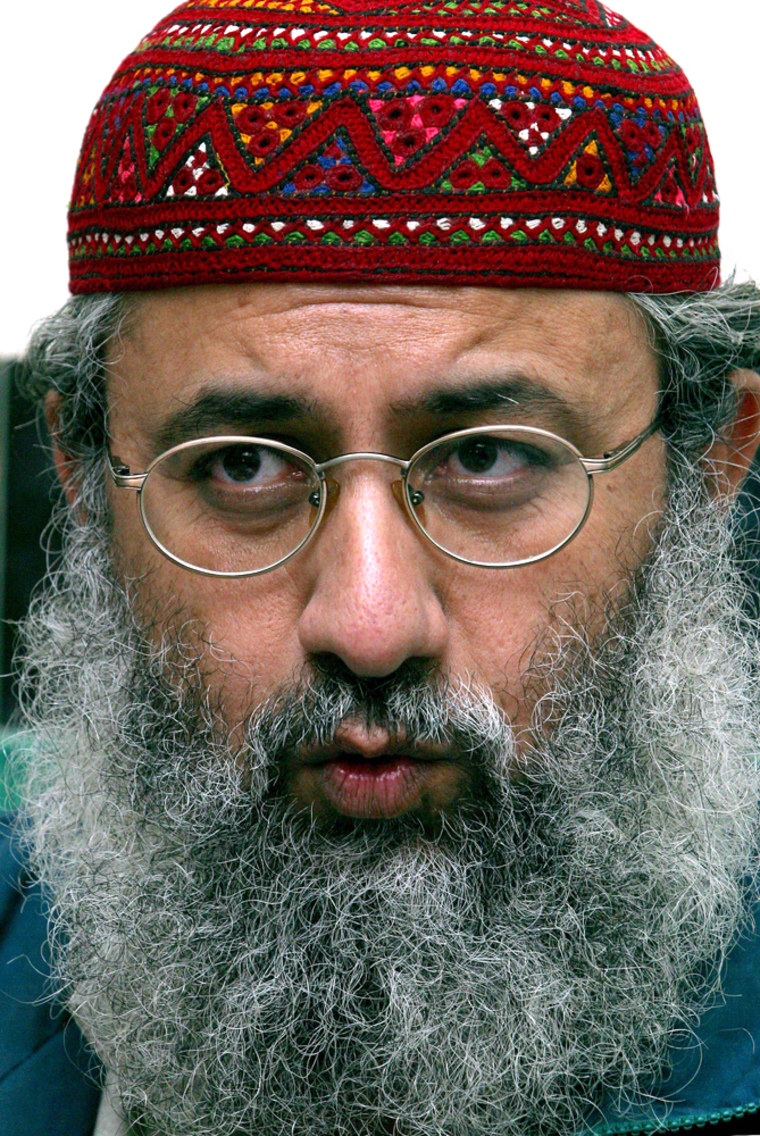Veiled in burqas and armed with bamboo canes, scores of female seminary students have occupied a children’s library to protest plans to demolish mosques and madrassas built without permission on government land.
The unusual protest has pitted Pakistan’s government against the chief of one of the country’s largest Islamic schools, long suspected of militant links.
“The protest is their form of jihad (holy war). They started it on their own and since we are sharing the same feeling, I have offered them support,” the chief cleric of the Lal Masjid mosque that runs the seminary, Abdul Rashid Ghazi, told The Associated Press.
Ghazi, an outspoken critic of Pakistan’s support of the United States, denied instigating the library protest, although he is the seminary’s vice principal. His open support could rally thousands to the cause — as he has in the past for anti-government and anti-U.S. protests.
Since late January, about 200 female students have been occupying the children’s library, which is run by the municipal authority and is sandwiched between the mosque and the sprawling Jamia Hafsa seminary — which provides a free Islamic education for some 6,500 girls and women.
Suspected of preaching extremism
The stand off has highlighted Pakistan’s apparent inability to regulate its more than 13,500 seminaries, amid international concerns that a minority of the schools promote extremism and provide militant recruits for the Taliban in neighboring Afghanistan.
Pakistan has occasionally taken extremely tough action on extremist religious schools. The army launched an Oct. 30 airstrike on a madrassa near the Afghan border accused of training suicide bombers, killing more than 80 people.
While no military strike is foreseen in the relatively sedate capital, far from the volatile frontier, the protest at Jamia Hafsa poses a direct challenge to government authority in Islamabad and could spark unrest among the thousands of Islamic students and sympathizers in the city.
According to local press reports, more than 84 such mosques and seminaries in Islamabad have been built without permission on state land. Residents say city authorities — who declined to respond to requests by AP for comment — have already demolished at least two, prompting protests by Jamia Hafsa students who fear their seminary could be razed next.
“Our Muslim government is acting like this only to please America, and I want to it to wake up now,” said Uma Aymen, a 22-year old seminary student involved in the sit-in.
Strugle to enforce law of the land
Shireen Mazari, director-general of a pro-government think tank, said the land dispute posed fundamental questions about the state’s ability to uphold the law, and asked why city administrators failed to prevent the illegal construction in the first place.
“Now that the ladies of the Jamia Hafsa have decided to use this occasion ... to confront the state, we see the law enforcers unable to enforce the law of the land,” she wrote in The News daily.
Naeem Iqbal, a spokesman for Islamabad police, said authorities were seeking to resolve the dispute peacefully. Pakistan’s religious affairs minister met protesters on Wednesday to discuss the standoff, and “there has been no decision as yet” to use force, Iqbal said.
Expectations that security forces could be planning to break up the protest prompted hundreds of male and female seminary students and local youths to gather around the mosque late Friday, shouting “Jihad is our way!” and “Allah is Great!” They pelted security forces with stones, fearing a raid on the library could be imminent.
Women refuse to leave
On Saturday, the women again refused police and government requests to leave.
“The women are not willing to vacate the library,” said police official Mohammed Afzal.
Earlier in the week, one of the protesters, 20-year-old Seema Zubair, suggested the students were willing to die to stop any wrecking crew. “We have prepared mentally to sacrifice our lives for our religion.”
Last week, President Gen. Pervez Musharraf said mosques or madrassas in “encroached areas” would be relocated. He warned that the government will “move against” extremists at mosques who fan hatred and encourage suicide bombers.
It was unclear whether he was referring to Ghazi and Lal Masjid, allegedly associated with Sipah-e-Sahaba, a banned Sunni Muslim militant group with ties to the Taliban.
Ume Hassan, the seminary’s principal, was in no mood for compromise.
“They can come and shoot me before they can touch this place,” she said.
